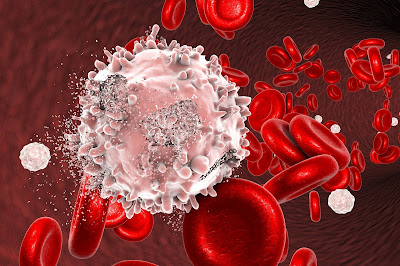New method could improve outcome of leukemia patients receiving stem-cell transplants

Stem-cell transplantation is an effective form of therapy to fight leukemia. In many cases, however, the transferred immune cells of the donor also attack the recipients' healthy tissue - often with fatal consequences. Researchers at the University of Zurich have now identified a molecule that plays a key role in this process. Blocking this molecule could significantly improve the outcome of patients receiving stem-cell transplants. Stem-cell therapy offers people suffering from leukemia or bone-marrow cancer the chance of full recovery. This requires eliminating the affected cells using chemo or radiation therapy and then replacing them with the blood stem cells from a healthy donor. The donor cells not only produce new blood cells, but also attack the other cancer cells in the patient's body and prevent them from suffering a relapse. However, this form of therapy is not without its risks: In 30% to 60% of cases, the donor cells also attack the...

